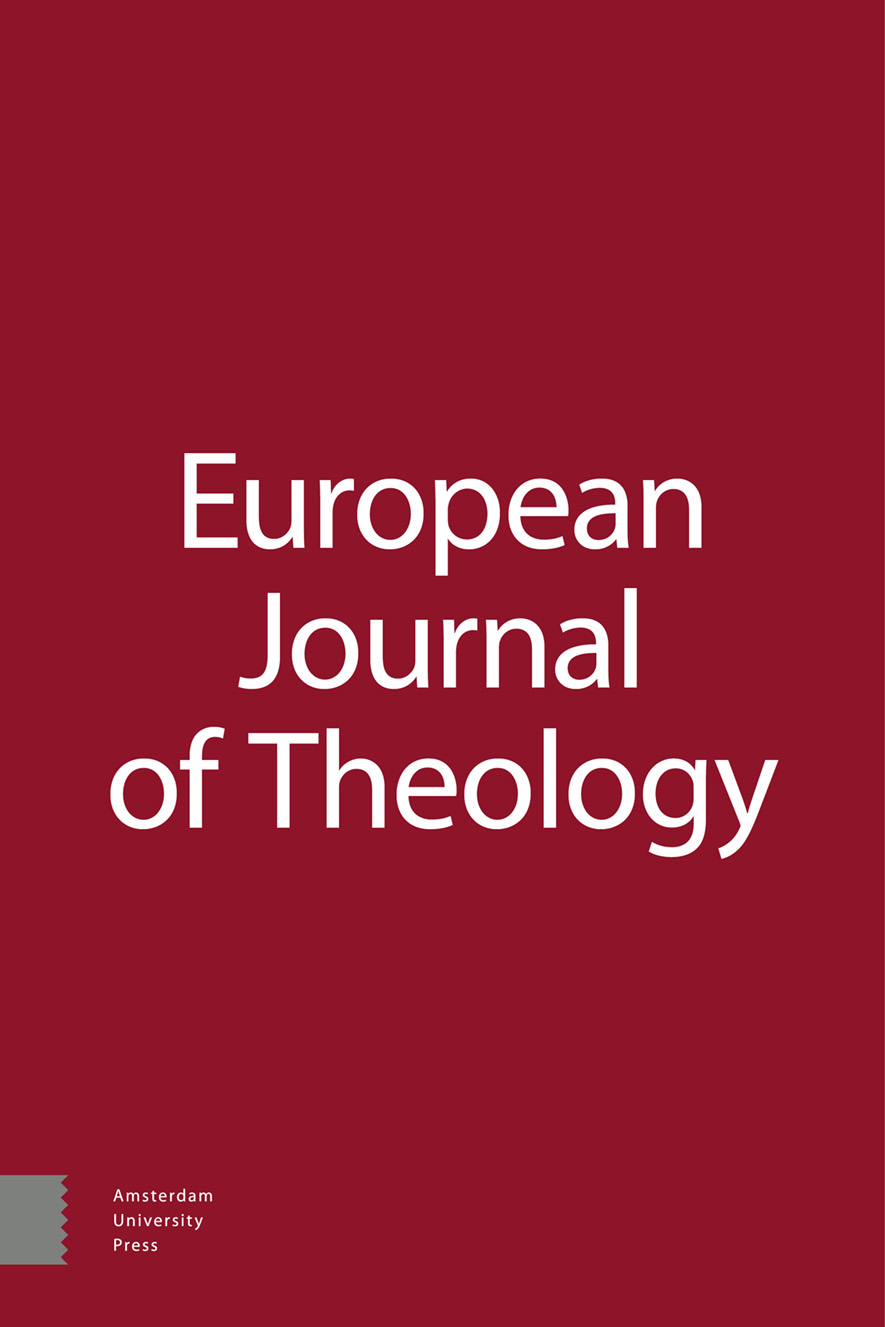-
oa The Church: Relic of the Past or Part of the Gospel Story?
- Amsterdam University Press
- Source: European Journal of Theology, Volume 28, Issue 1, Dec 2020, p. 44 - 53
-
- 01 Dec 2020
Abstract
Zusammenfassung
Dieser Artikel stellt einen praktisch-theologischen Diskurs über die Präsenz und Bedeutung von Kirche und Gemeinde dar. Für viele, die am Christentum interessiert sind, gibt es unterschiedliche Hürden zu überwinden in Form einer institutionalisierten Kirche und organisierten Religion. Wir können nicht die Tatsache ausblenden, dass die Kirche keinen schmeichelhaften Ruf in unserer Gesellschaft genießt. Und das gilt nicht nur für Menschen, die sie von außen beobachten, sondern zuweilen erzeugt die bloße Existenz von Kirche und Gemeinde ein Problem für unsere individualistische Gesellschaft. Dieser Trend wurde in den 1960er und 70er Jahren gefördert, als Kirche und Gemeinde von Theologen unterschiedlicher christlicher Traditionen übersehen und abgelehnt wurden, einschließlich beispielsweise von Anhängern der Befreiungstheologie. Mitunter wurde die Gemeinde als deformierter Ausdruck einer gewissen Wesenseinheit verstanden, die eigentlich das Reich Gottes sein sollte.
Jedoch misst die Lehre von Jesus in den Evangelien der Gemeinde eine durchaus bedeutende Rolle bei, und der Fokus der neutestamentlichen Briefe liegt auf Gemeindegründung und –bau. Trotz aller kritischen Kommentare und aller Entstellungen in Vergangenheit und Gegenwart argumentiert der Autor dass das Christentum nicht ohne Kirche und Gemeinde existieren kann. Die Gemeinde ist kein Relikt aus der Vergangenheit, sondern ein wesentlicher Bestandteil des Evangeliums. Wir dürfen kontextuelle Prägungen für die Gemeinde suchen, sie aber nicht insgesamt zu vermeiden suchen. Sie ist keine Erfindung von Christen, sondern sie ist die geliebte Braut von Christus, die eine wichtige Rolle im Erlösungsplan und einen entscheidenden Part bei der Auslegung der Heiligen Schrift spielt.
Summary
This article is a practical-theological discourse about the appearance and the importance of the Church. For many who are interested in Christianity, there are different obstacles in the form of the institutional Church and organised religion. We cannot avoid the fact that the Church does not have a favourable reputation in our society. Not just for people watching her from the outside, but even the mere existence of the Church sometimes creates a problem for our individualistic society. This trend was fostered in the 1960s and ‘70s when the Church was overlooked and rejected by theologians of various Christian traditions, including for example adherents of Liberation Theology. The Church was sometimes understood as a deformed expression of a certain entity that should in reality be the Kingdom of God.
However, the teaching of Jesus in the Gospels gives the Church quite an important role, and the focus of the New Testament Epistles is church planting and building. In spite of all critical comments and distortions of the past and the present, I will argue that Christianity cannot exist without the Church. The Church is not a relic of the past but a substantial part of the gospel. We are allowed to seek a contextualised expression of the Church, but not to avoid her altogether. She is not an invention of Christians; she is the beloved bride of Christ that plays an important role in the plan of salvation and a crucial role in interpreting the Scriptures.
Résumé
Cet article est un discours de théologie pratique sur la naissance et l’importance de l’Église. Bien des gens intéressés par le christianisme butent contre divers obstacles lorsqu’ils considèrent la forme de l’Église institutionnelle et de la religion organisée. On ne peut éviter le fait que l’Église n’a pas une réputation très favorable dans notre société. Non seulement c’est le cas d’observateurs extérieurs, mais la simple existence même de l’Église constitue parfois un problème dans notre société individualiste. Cette tendance est apparue dans les années soixante et soixante-dix du fait que l’Église était négligée et rejetée par des théologiens appartenant à diverses traditions, comme par exemple les tenants de la théologie de la libération. L’Église a parfois été considérée comme une expression déformée d’une certaine entité qui devrait en réalité être le Royaume de Dieu.
Cependant, l’enseignement de Jésus dans les évangiles attribue à l’Église un rôle important et les épîtres du Nouveau Testament se concentrent sur l’implantation et l’édification d’Églises. Malgré toutes les critiques négatives et les distorsions du passé et du présent, je soutiens que le christianisme n’existe pas sans l’Église. L’Église n’est pas une relique du passé mais elle fait partie intégrante de l’Évangile. Il est permis de rechercher une expression contextualisée de l’Église, mais pas de renoncer à l’Église. Elle n’est pas une invention des chrétiens ; elle est l’épouse bien-aimée de Christ, elle joue un rôle important dans le plan du salut et a une fonction cruciale d’interprétation de l’Écriture.


